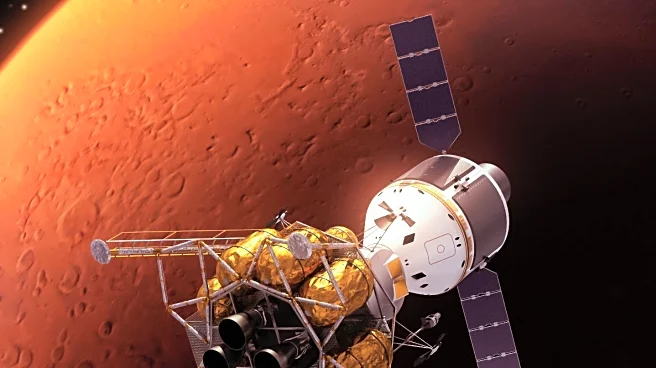What's Happening?
Celestis, a Texas-based company known for space burial services, has announced the Mars300 mission, aiming to send capsules containing cremated human remains and DNA samples into orbit around Mars. The mission is scheduled for launch in 2030, with reservations
now open. The company has previously conducted several flights beyond Earth, using various launch vehicles. The Mars300 mission will adhere to COSPAR's planetary protection protocols to preserve the Martian environment.
Why It's Important?
The Mars300 mission represents a unique intersection of science, exploration, and legacy, offering individuals a chance to be part of humanity's expansion into the solar system. It highlights the growing interest in space burial services and the commercialization of space exploration. The mission raises ethical considerations regarding the preservation of extraterrestrial environments and the impact of human activities on other planets. It also reflects the increasing capabilities of private companies in conducting complex space missions.
What's Next?
Celestis is accepting reservations with a 10% prepayment, and the mission's success will depend on securing a reliable launch provider, likely SpaceX's Starship. The company aims to unite science and exploration, offering a unique memorial service that speaks to humanity's shared destiny beyond Earth. The mission's adherence to planetary protection protocols will be crucial in ensuring the preservation of Mars' delicate ecosphere. The success of Mars300 could pave the way for similar missions to other celestial bodies.
Beyond the Headlines
The Mars300 mission raises questions about the commercialization of space and the ethical implications of sending human remains to other planets. It challenges traditional notions of burial and memorialization, offering a futuristic alternative that aligns with humanity's aspirations for space exploration. The mission also highlights the need for international cooperation in establishing guidelines for space activities, ensuring the protection of planetary environments. As private companies expand their capabilities, the role of government agencies in regulating space activities becomes increasingly important.















